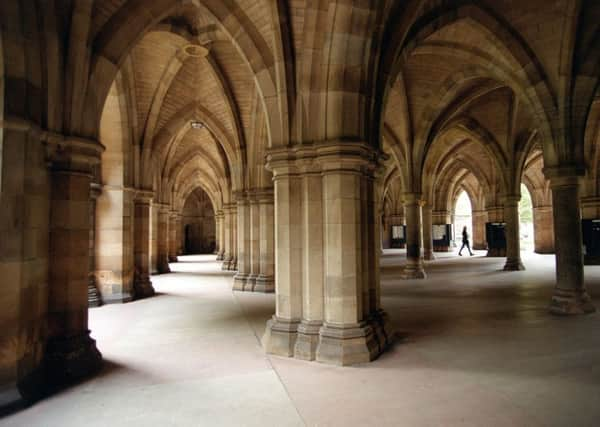Comment: Gaelic thrives and survives as never before


The renaissance of Celtic and Gaelic in the University of Glasgow was a close-run thing. Twenty years ago, all three of the department’s members of staff were about to retire at once. In those straitened times, the university could easily have chosen to close it down, but instead the decision was made to invest in a new team to take the department into the future.
Twenty years later that investment, and many others since, mean that instead of three, there are now eight members of teaching staff, plus a host of researchers working on externally-funded projects – on topics as diverse as Scottish place-names, saints’ cults, adult learners of Scottish Gaelic, and digital resources which will provide the basis for a historical dictionary of Scottish Gaelic available to all.
Advertisement
Hide AdAdvertisement
Hide AdThere is a focus, too, on training up the next generation: Glasgow’s one solitary Celtic post-graduate student of two decades ago would be stunned to see that this year there were no less than 20 doctoral students working in Celtic and Gaelic. Together they constitute a research team which was evaluated the top independently submitted Celtic studies unit in the five-yearly, UK-wide research assessment exercise and in the top ranks of all modern language units.
To crown it all, the department is playing host to the largest academic meeting in its field, the 15th International Congress of Celtic Studies which is in Glasgow from 13-17 July. This broad, interdisciplinary conference, the “Olympics” of Celtic Studies, happens only once every four years, and this is the first time it has been held in Glasgow. Nearly 500 scholars from 130 institutions in 25 countries including Russia, Australia, USA and Brazil will gather in Glasgow to debate topics ranging from the sociolinguistics of the modern Celtic languages to medieval Irish poetry, and from contemporary Welsh fiction to the archaeology of the ancient Celtic regions of Europe.
This international interest in Celtic and in Gaelic will be highlighted as the university confers honorary degrees on four scholars who have made invaluable contributions to the recording and preservation of disappearing dialects of Gaelic in the second half of the 20th century. These individuals – from the USA, Germany, and Ireland – sought out and recorded the last speakers of Gaelic dialects in Sutherland, Ross-shire, Perthshire, and Nova Scotia, preserving their unique varieties of the language for future speakers and researchers of Gaelic and for linguistics scholars around the world.
In recognising these academics, the university is honouring the language which has been their life’s work. Other recent initiatives demonstrate the depth of the university’s commitment to Gaelic. In 2010 it created Europe’s first established Chair of Gaelic. Its holder – Professor Roibeard Ó Maolalaigh – is now vice-principal and head of the College of Arts. In 2009, Fiona Dunn was appointed the first ever university-wide Gaelic development officer. Her award-winning work on promoting the visibility and audibility of Gaelic in the university has led to a series of new initiatives, including an innovative Gaelic-language student residence scheme. The university has also funded a ground-breaking research project uncovering the hidden Gaelic history of Glasgow University. The fruits of this project are now available on-line in both English and Gaelic
When the University of Glasgow was founded in 1451, half the population of Scotland spoke Gaelic, including the inhabitants of districts as close to Glasgow as Stirlingshire and Dumbartonshire. The low status of the language, however, meant that ability to speak Gaelic was rarely noted in the records and it has taken painstaking research by Aonghas Mac Coinnich to reveal the full extent to which Gaelic-speakers were active at the heart of the university as both as staff and students. It was a surprise, for instance, to discover that at least three principals of the University were Gaelic speakers.
Delates arriving for the Congress will find a city and a university in which the Gaelic language is once again being spoken by the young. The success of Glasgow’s Gaelic School – the first in Scotland – has been so great that a new one is currently under construction to cope with the ever-expanding number of pupils. There are still many challenges but today there is renewed energy and optimism and many hopeful signs. There is no better time for the whole extended community of Celtic and Gaelic – teaching staff, researchers, students, project workers and administrators – to pull together to welcome the world of Celtic Studies to Glasgow’s doors. How glad we all are of that fateful decision 20 years ago.
• Thomas Owen Clancy is the Professor of Celtic at the University of Glasgow and is joint president of the 15th International Congress of Celtic Studies. www.gla.ac.uk